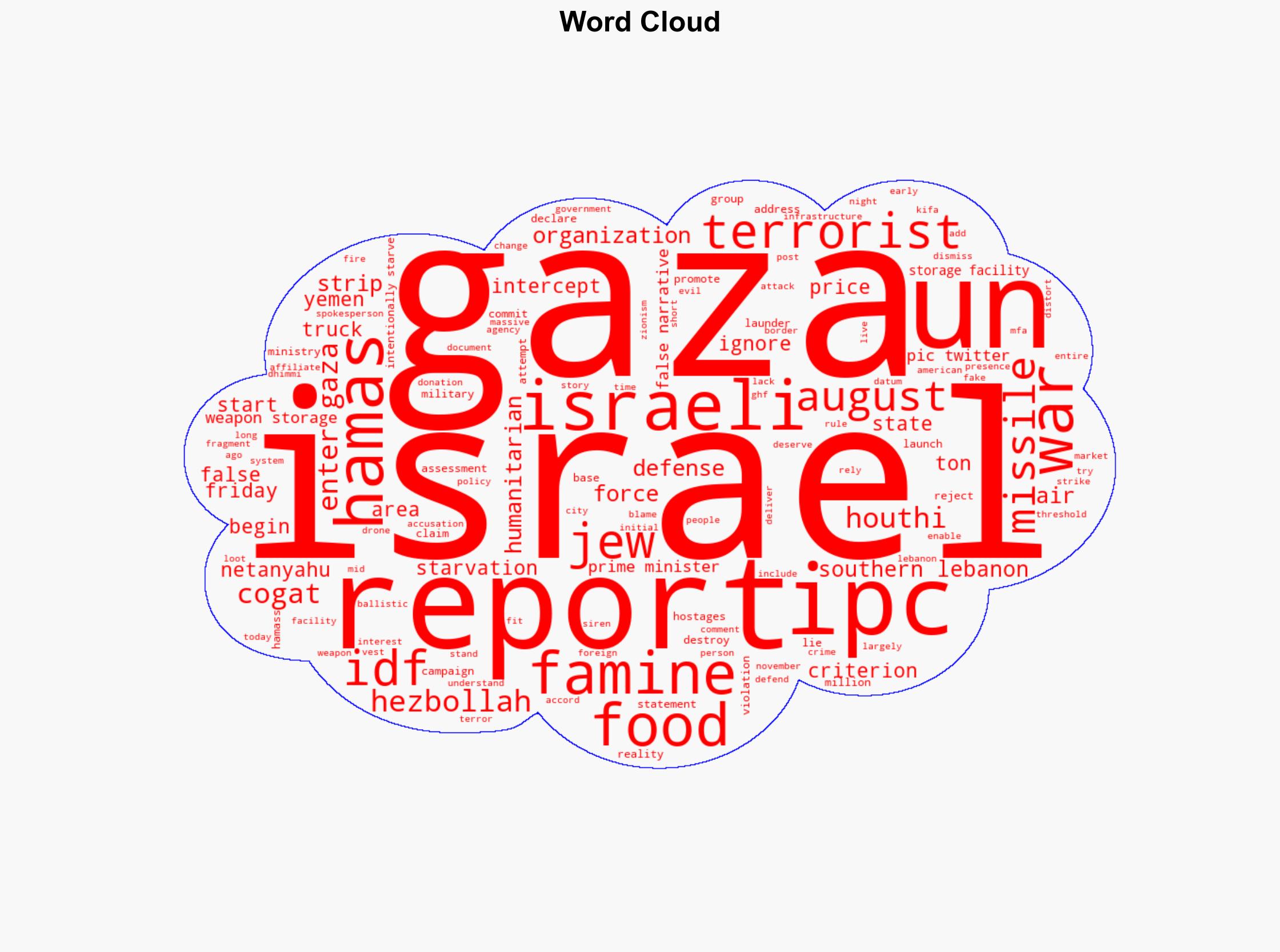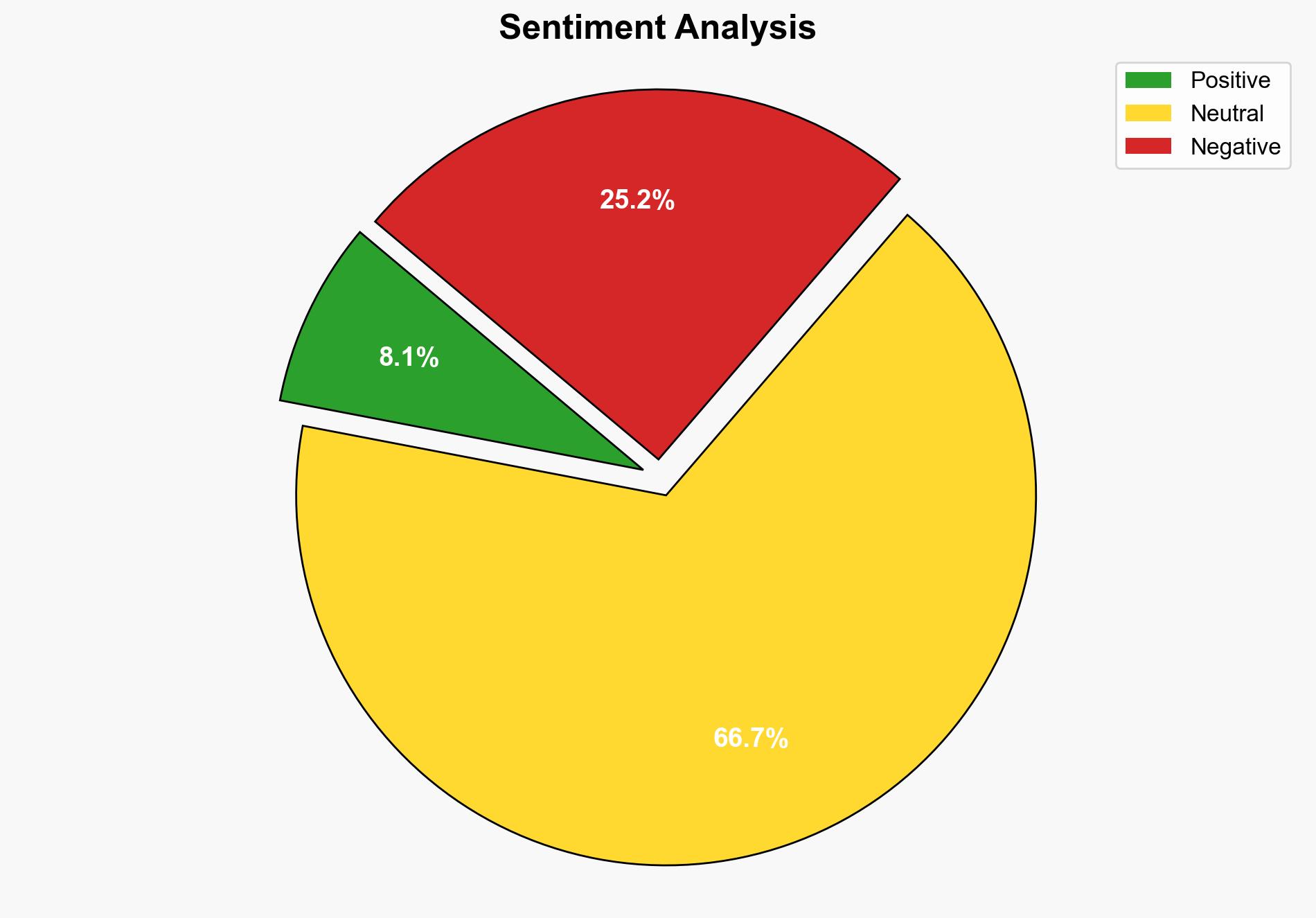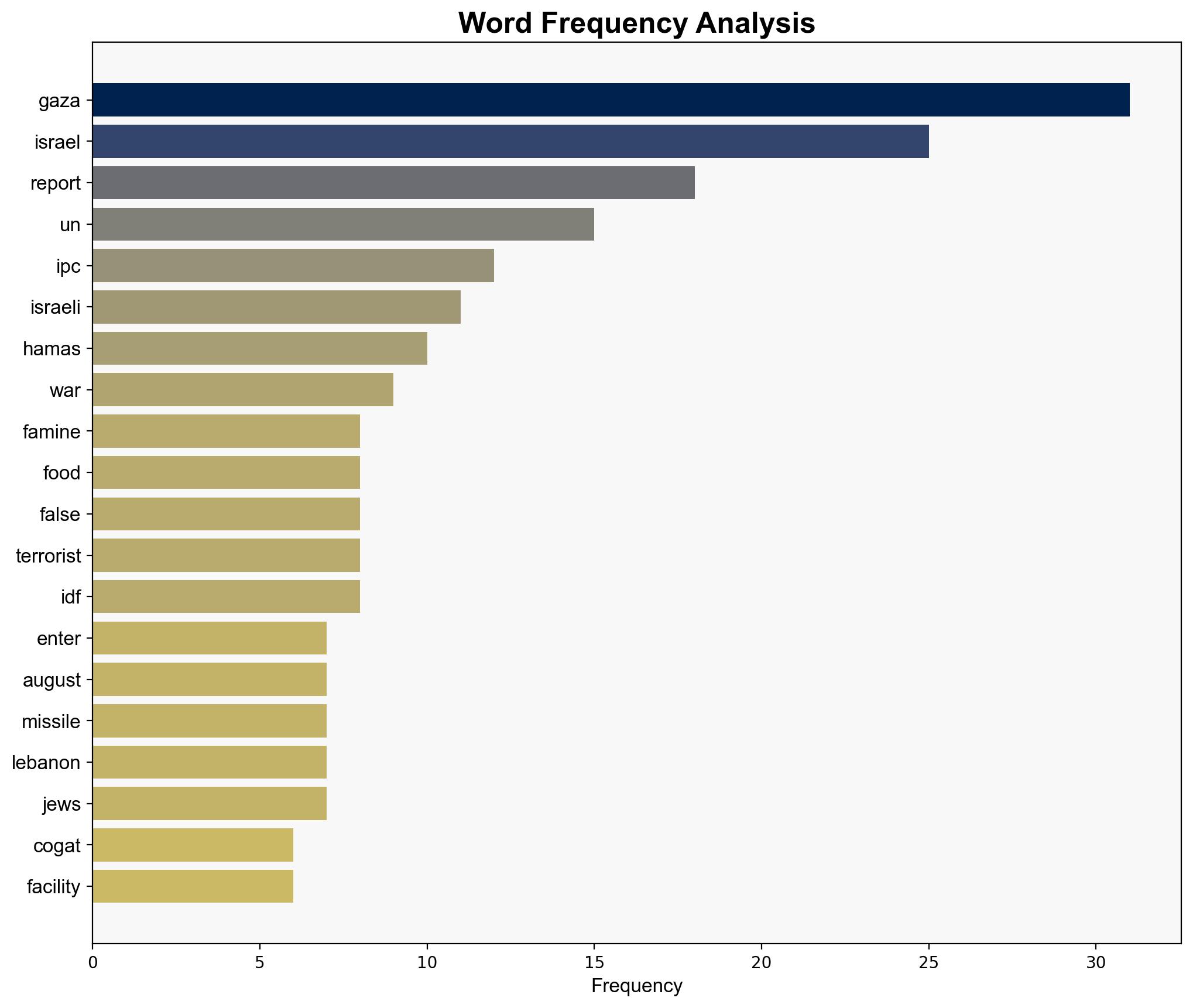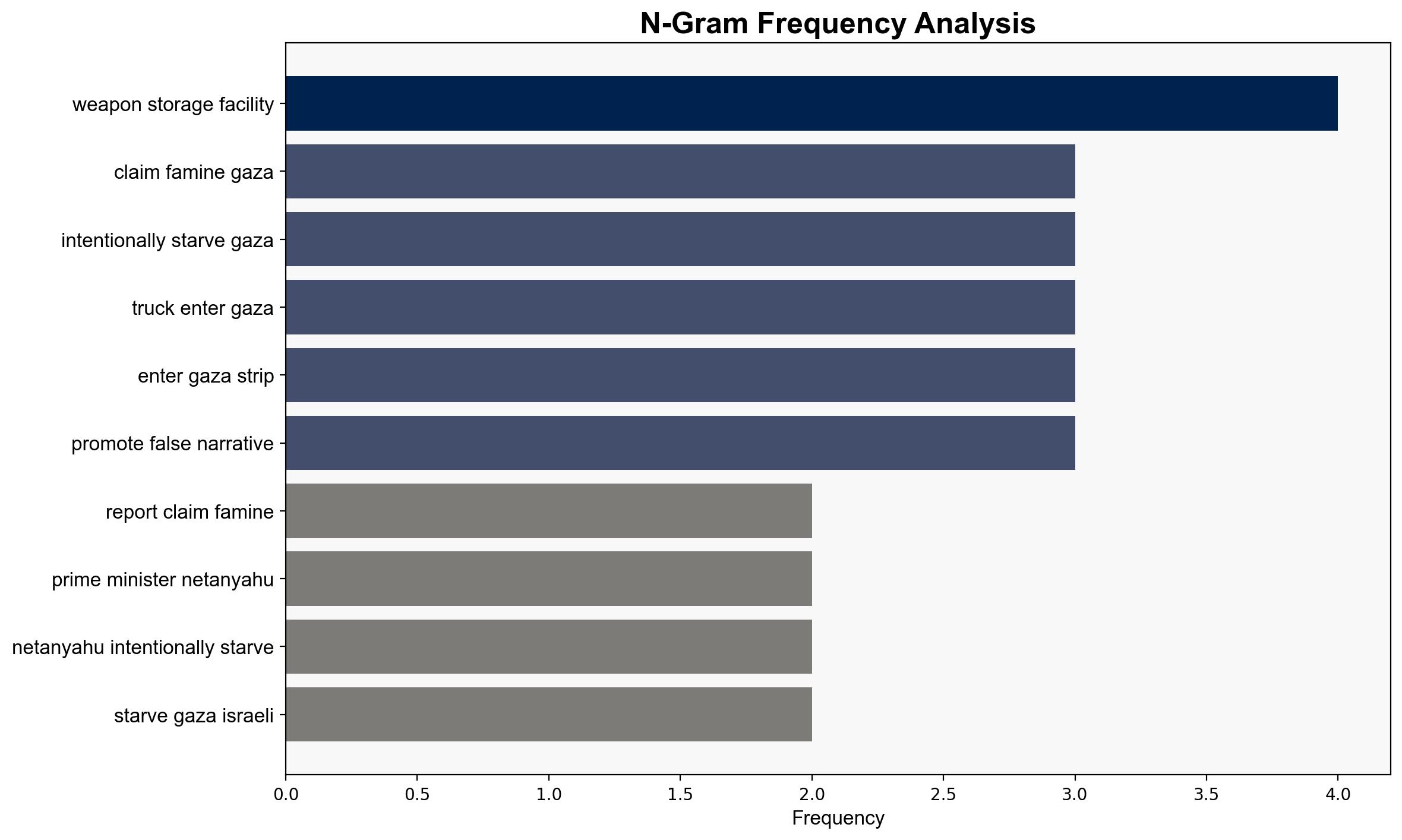Israel Rejects Biased UN Report Claiming Famine in Gaza – Legalinsurrection.com
Published on: 2025-08-23
Intelligence Report: Israel Rejects Biased UN Report Claiming Famine in Gaza – Legalinsurrection.com
1. BLUF (Bottom Line Up Front)
The most supported hypothesis is that the UN report on famine in Gaza is influenced by biased sources, primarily due to reliance on data from Hamas-affiliated organizations. The confidence level in this judgment is moderate, given the complexity of the situation and the potential for misinformation. It is recommended to conduct an independent verification of the humanitarian situation in Gaza to ensure accurate reporting and to mitigate the risk of misinformation influencing international perceptions and policy decisions.
2. Competing Hypotheses
1. **Hypothesis A**: The UN report accurately reflects the humanitarian crisis in Gaza, including famine, based on credible data sources.
2. **Hypothesis B**: The UN report is biased, relying on data from Hamas-affiliated organizations, and exaggerates the humanitarian crisis to fit a specific narrative.
Using the Analysis of Competing Hypotheses (ACH) 2.0, Hypothesis B is better supported due to the following:
– The report’s reliance on data from organizations with potential vested interests.
– Israel’s documented efforts to allow humanitarian aid into Gaza, contradicting claims of intentional starvation.
– The significant influx of goods into Gaza, as reported by Israeli sources, which undermines the famine narrative.
3. Key Assumptions and Red Flags
– **Assumptions**: Hypothesis A assumes UN impartiality and the accuracy of data from local sources. Hypothesis B assumes manipulation of data by Hamas-affiliated entities.
– **Red Flags**: The potential bias in data sources, the omission of information on aid deliveries, and the lack of independent verification of the report’s claims.
– **Blind Spots**: The absence of third-party verification of the humanitarian situation in Gaza, which could either confirm or refute the claims made in the report.
4. Implications and Strategic Risks
– **Geopolitical**: The report could exacerbate tensions between Israel and international bodies, potentially leading to diplomatic fallout.
– **Psychological**: The narrative of a humanitarian crisis could influence global public opinion against Israel, impacting its international standing.
– **Cascading Threats**: Misrepresentation of the situation could lead to increased support for Hamas, complicating peace efforts and regional stability.
5. Recommendations and Outlook
- Conduct independent assessments of the humanitarian situation in Gaza to verify claims and ensure accurate reporting.
- Engage with international partners to address potential biases in data collection and reporting mechanisms.
- Scenario Projections:
- **Best Case**: Independent verification disproves famine claims, reducing tensions and improving Israel’s international image.
- **Worst Case**: Continued dissemination of biased reports leads to increased international pressure and isolation of Israel.
- **Most Likely**: Mixed outcomes with partial verification, leading to ongoing debates and diplomatic challenges.
6. Key Individuals and Entities
– Benjamin Netanyahu
– United Nations
– Hamas
– Israel Ministry of Foreign Affairs
7. Thematic Tags
national security threats, cybersecurity, counter-terrorism, regional focus





